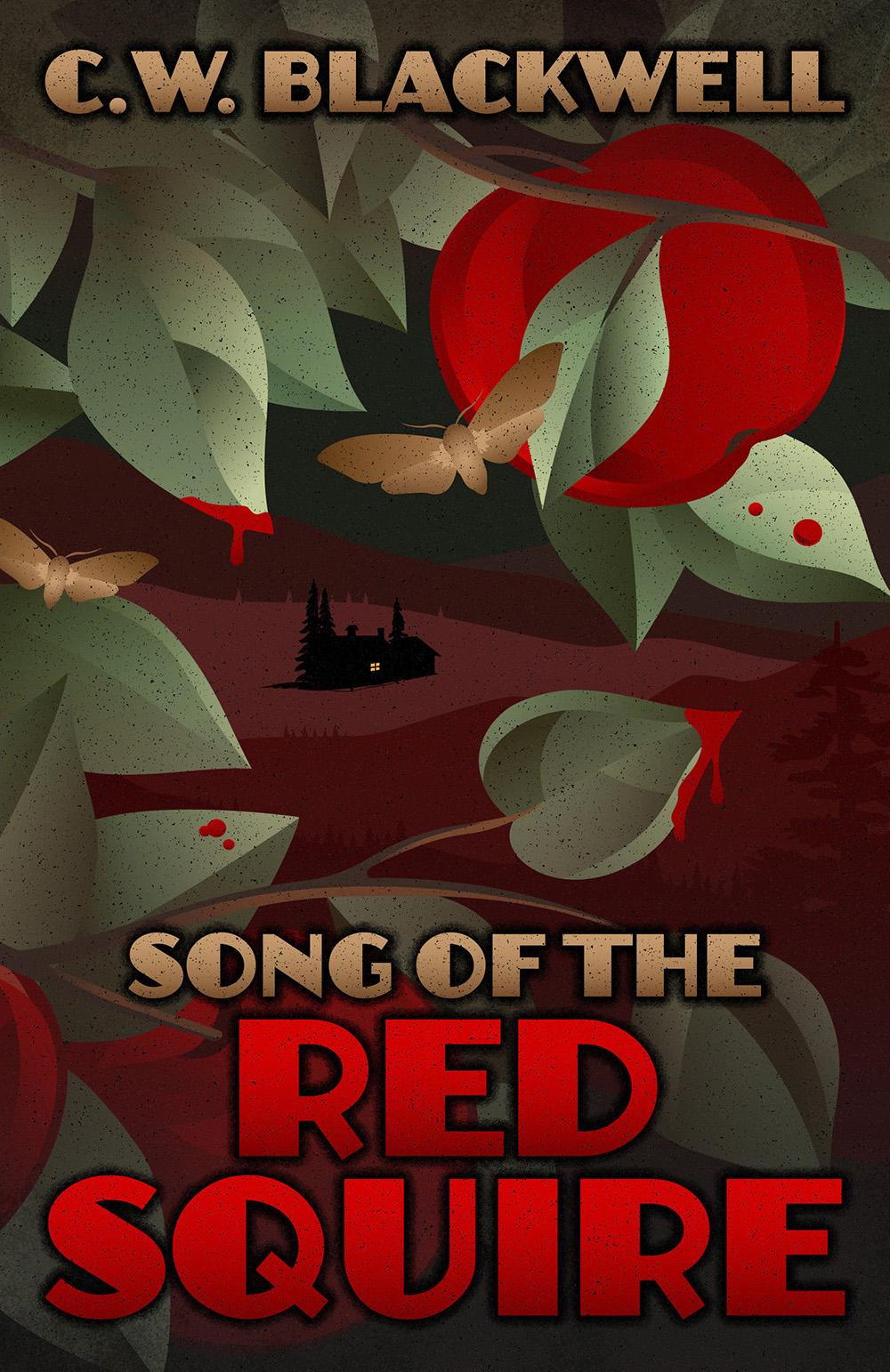C.W. BLACKWELL
Song of the Red Squire

FOLK HORROR | APPALACHIAN | NOIR | NOVELLA
“I loved this one. Absolutely top-notch folk horror. It is up in my all-time folk horror books.”
—Well Read Beard, Goodreads review
North Carolina, 1949. When agricultural inspector Charlie Danwitter is sent on a special assignment to bucolic Ashe County, he expects an easy job cataloging heirloom apple varieties. However, when the local farmers grow suspicious of his motives, Charlie finds himself in far more trouble than he bargained for. In an attempt to salvage his assignment, he follows a mysterious woman deep into the beating heart of the Blue Ridge Mountains to a long-forgotten village where harvest rituals are rooted in bizarre Old World customs—and discovers that some traditions are better left in the past.
ABOUT THE AUTHOR
-
C.W. Blackwell is an award-winning author and poet from the Central Coast of California. He has been a gas station attendant, a rock musician, and a crime analyst. He is a 2021 Derringer Award winner.
PRODUCT DETAILS
- Paperback: 170 pages | Novella
- Language: English
- ISBN-13: 978-1-944286-26-2 (paperback)
Also available as an ebook.
REVIEWS
Part crime fiction noir, part folk horror, Squire follows Charlie Danwitter as he documents apple varieties for the USDA in the late 1940s. Blackwell, a seasoned maestro in penning historical fiction, nails period details with the sharpest of hammers, from subtle setting description to cadence in dialogue. Charlie is a sympathetic but complex protagonist, a World War II veteran still shell-shocked from the battlefield, shoveling barbiturates into his mouth like Tic-Tacs, trying desperately to tamp down the terrifying flashbacks described in a series of haunting tableaus that wax and wane through the novella: “From the sea of fog rose a strange ethereal figure. A wraithlike face with moon eyes and a great void mouth. The head twisted and bore its nightmare eyes on the train. It seemed fixed on Charlie’s window as it crested the summit and came wending into the valley, white tendrils casting about like spiders’ legs.”
The book begins with Charlie arriving at his destination, a rural corner of North Carolina famous for its wide variety of apples, but something isn’t right. The character can’t put his finger on it, and neither can the reader, but the author pokes tiny pricks in the Americana fabric, creating a sense of unease almost from the start. Area farmers are more than reluctant to participate in the interloper’s project, so when given the opportunity to travel to an even more remote area that might be more cooperative, Charlie jumps at the chance without hesitation. Blackwell nudges us, though, that something darker awaits his hero with subtle details: a report of a colleague on a similar excursion going suspiciously missing, a bizarre discussion with a roadside beekeeper about deadly stings, a car accident that leaves a female passenger injured and dazed. In the last, the victim “shut her eyes and took a long shuddering breath. When she opened them again, she was staring right at him. ‘You got a dead man’s voice,’ she said. ‘Don’t hear no life at a-tol…Sing me a dead man’s song,’ she howled. ‘Sing it with grave roots wrung about your throat. Sing it from your rotten grave!’”
One is reminded of the most successful of classic noirs and psychological thrillers as Squire progresses. When Charlie tries to navigate the ominous secrecy surrounding the farmlands, echoes of Chinatown’s Jake Gittes poking his head into California’s water shortages resonate; when Charlie attempts to outrun his nightmares of the war while trying his best to salvage his career, whispers of Shutter Island’s Teddie Daniels fixating on the mysterious disappearance of a guarded patient waft by.
Squire is certain to please the most nitpicky of both crime fiction and folk horror fans as it both embraces and reinvents the most well-trodden tropes of each genre. Even as Charlie is warned to stay away, readers will be on the edge of their seats, pushing him to keep going, even if it might mean their hero will be wading out too far to ever return. A local cautions Charlie, “Son, you’ve got to keep the Devil at your knee. Let him curl up at the end of your bed on a windy night. Feed him scraps from the table. A hungry devil is a dangerous one indeed.” Readers, take heed: Song of the Red Squire will kidnap and keep you captive until the very last page, and after finishing, you’ll likely never drive through a stretch of unfamiliar rural landscape without holding your breath again. —Rebecca Rowland, Ginger Nuts of Horror review
